
Enchanting German Colony of Haifa: A Blend of History and Charm
Nestled at the foot of the Bahá'í Gardens, the German Colony in Haifa is a picturesque enclave that offers a delightful blend of history, culture, and modernity. Established in the 19th century by German Templers, this neighborhood is characterized by its red-roofed houses, cobblestone streets, and a unique architectural style that sets it apart from other parts of the city. Walking through the German Colony, you'll be captivated by the well-preserved buildings that now house trendy cafes, boutique shops, and art galleries. The main street, Ben Gurion Boulevard, is lined with palm trees and offers stunning views of the Bahá'í Gardens, making it a perfect spot for a leisurely stroll. As you explore, you'll find numerous plaques and signs that provide insights into the rich history of the area, adding depth to your visit. The German Colony is also a culinary haven, with a variety of restaurants offering both local and international cuisine. Whether you're in the mood for traditional Israeli dishes or something more exotic, you'll find plenty of options to satisfy your palate. In the evening, the neighborhood comes alive with vibrant nightlife, as bars and cafes fill with locals and tourists alike, creating a lively and welcoming atmosphere.
Local tips in German Colony
- Visit the Bahá'í Gardens early in the morning to avoid the crowds and enjoy a peaceful experience.
- Wear comfortable shoes as the cobblestone streets can be uneven and require a bit of walking.
- Take a guided tour to learn about the fascinating history of the German Templers and their influence on the area.
- Try the local falafel and hummus at one of the neighborhood's many eateries for an authentic taste of Israeli cuisine.
- Check out the local art galleries and boutiques for unique souvenirs and gifts.
Enchanting German Colony of Haifa: A Blend of History and Charm
Nestled at the foot of the Bahá'í Gardens, the German Colony in Haifa is a picturesque enclave that offers a delightful blend of history, culture, and modernity. Established in the 19th century by German Templers, this neighborhood is characterized by its red-roofed houses, cobblestone streets, and a unique architectural style that sets it apart from other parts of the city. Walking through the German Colony, you'll be captivated by the well-preserved buildings that now house trendy cafes, boutique shops, and art galleries. The main street, Ben Gurion Boulevard, is lined with palm trees and offers stunning views of the Bahá'í Gardens, making it a perfect spot for a leisurely stroll. As you explore, you'll find numerous plaques and signs that provide insights into the rich history of the area, adding depth to your visit. The German Colony is also a culinary haven, with a variety of restaurants offering both local and international cuisine. Whether you're in the mood for traditional Israeli dishes or something more exotic, you'll find plenty of options to satisfy your palate. In the evening, the neighborhood comes alive with vibrant nightlife, as bars and cafes fill with locals and tourists alike, creating a lively and welcoming atmosphere.
Iconic landmarks you can’t miss
Bahá’í Gardens Haifa (Bahá’í Holy Place)
Explore the stunning Bahá'í Gardens in Haifa, a UNESCO World Heritage Site filled with terraced landscapes and spiritual significance.
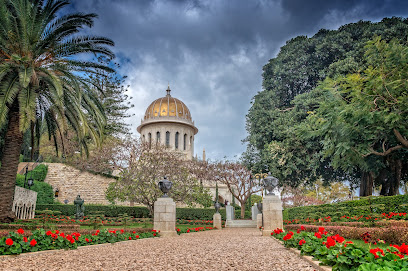
Sculptures Garden
Explore the enchanting Sculptures Garden in Haifa, where art meets nature in a breathtaking urban oasis.
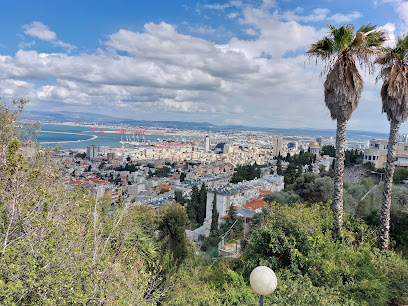
Beit Hagefen
Explore Beit Hagefen, Haifa's vibrant cultural center, where art, heritage, and community come together in a celebration of diversity.
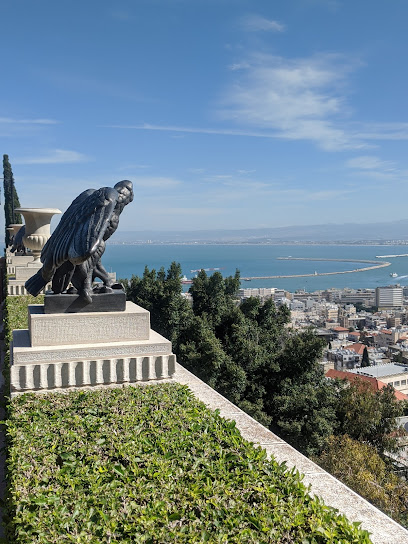
מוזיאון העיר, חיפה
Discover the vibrant world of modern and contemporary art at the Haifa Museum of Art, a cultural landmark in Haifa, Israel.
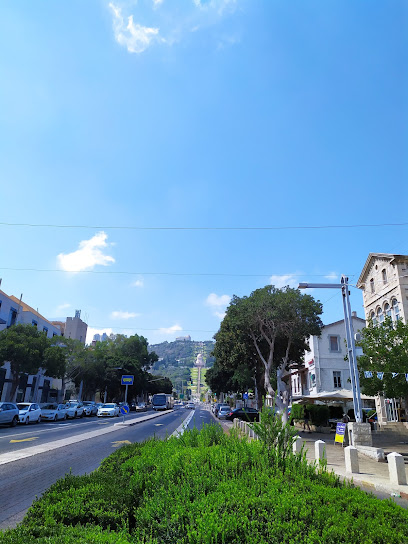
Shrine of the Báb (Bahá’í Holy Places)
Explore the stunning Shrine of the Báb in Haifa, a UNESCO World Heritage site, combining spiritual beauty with breathtaking gardens and a serene atmosphere.
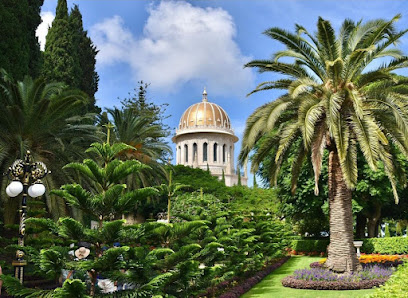
Shrine of the Báb
Discover the breathtaking Shrine of the Báb in Haifa, a spiritual landmark adorned with stunning gardens and rich history.
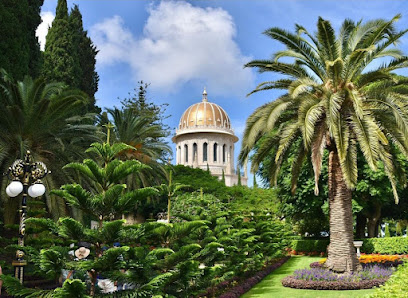
Khirbet Rushmiya
Discover the enchanting Khirbet Rushmiya Fortress in Haifa, where rich history meets breathtaking views in a serene natural setting.
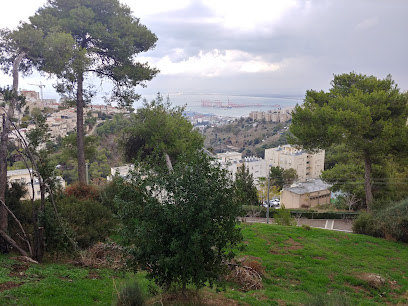
Beit Shumacher
Explore Beit Shumacher, a historical landmark in Haifa, showcasing unique architecture and rich cultural stories waiting to be discovered.
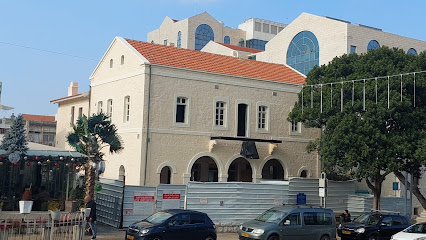
The Templar Windmill - Haifa
Explore Haifa's Templar Windmill, a historical landmark showcasing rich heritage, stunning views, and unique exhibitions.
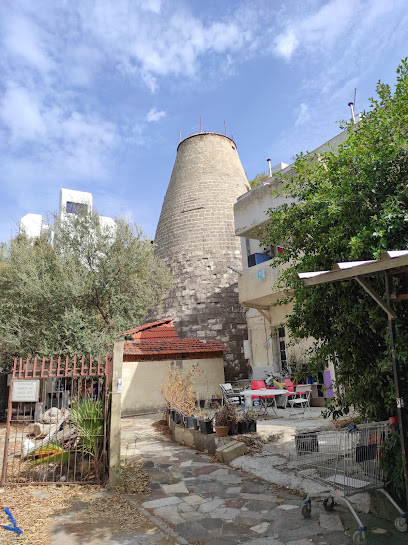
House of the Master
Discover the serene beauty and spiritual significance of the House of the Master in Haifa, a must-visit pilgrimage site for Baha'i followers and tourists alike.
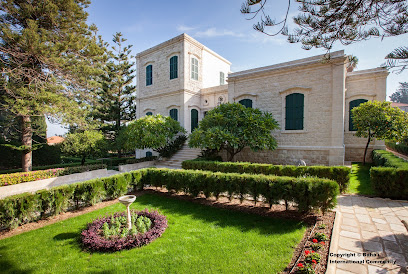
Rav Avdimi Dmin Haifa Tomb
Explore the serene and historical tomb of Rav Avdimi Dmin in Haifa, a spiritual haven that connects visitors with rich Jewish heritage.
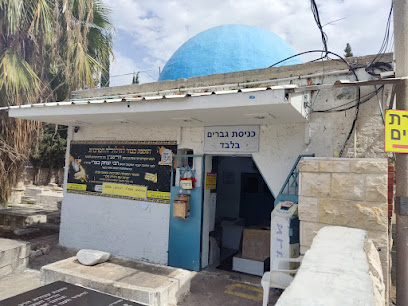
Memorial Kamil Shehade
Explore the Memorial Kamil Shehade in Haifa, a serene historical landmark celebrating local heritage and culture amidst beautiful landscapes.
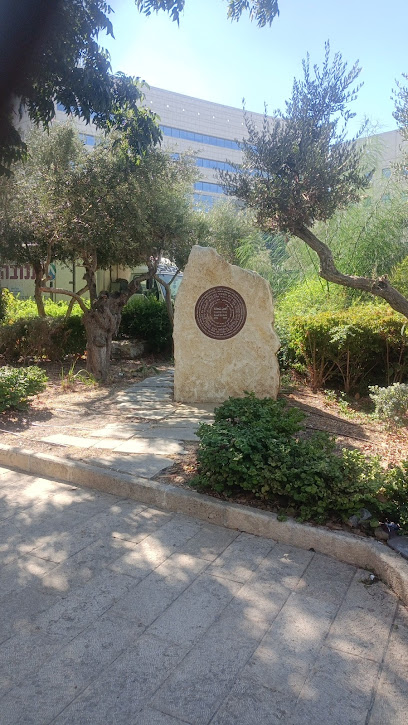
Unmissable attractions to see
Hecht Park
Explore Hecht Park in Haifa, a beautiful urban oasis offering lush greenery, playgrounds, and stunning views for the perfect outdoor experience.
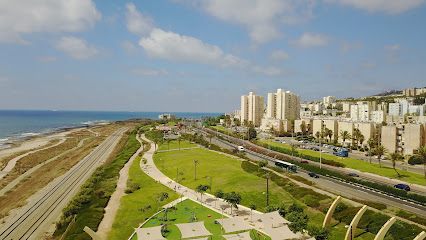
Clandestine Immigration and Naval Museum
Explore the Clandestine Immigration and Naval Museum in Haifa for a deep dive into Israel's maritime history and the courageous journeys of immigrants.

Haifa Museum of Art
Discover the Haifa Museum of Art, a cultural hub showcasing modern and contemporary artworks in a stunning architectural setting.
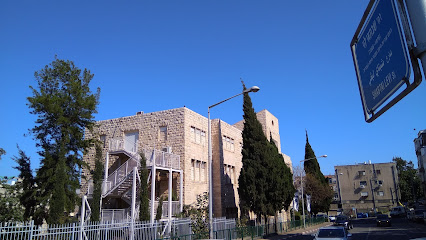
Bahá'í Gardens at Hatzionut Avenue 80, will be temporarily closed from 1:30 PM to 3:00 PM on Sunday, 19 May 2024
Explore the breathtaking Bahá'í Gardens in Haifa, a UNESCO World Heritage site showcasing stunning terraces, vibrant gardens, and spiritual tranquility.
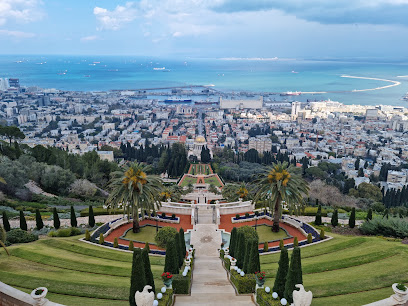
Hatzionut viewpoint
Discover the stunning views of Haifa from Hatzionut Viewpoint, where the beauty of the Mediterranean meets the rich culture of Israel.
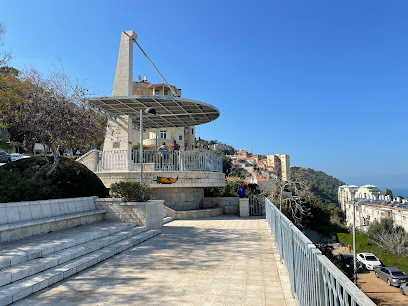
Haifa Cruise Pier
Experience the charm of Haifa at the Cruise Pier, your gateway to stunning vistas, rich history, and vibrant culture in the heart of the Mediterranean.
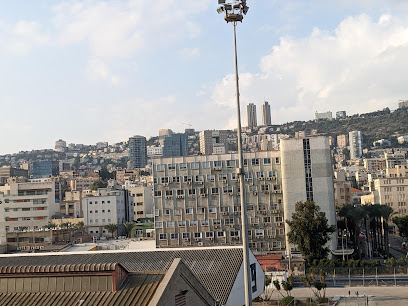
הבית של סנטה
Explore the stunning Bahá'í Gardens in Haifa, a UNESCO site of beauty and spiritual significance, offering breathtaking views and serene landscapes.
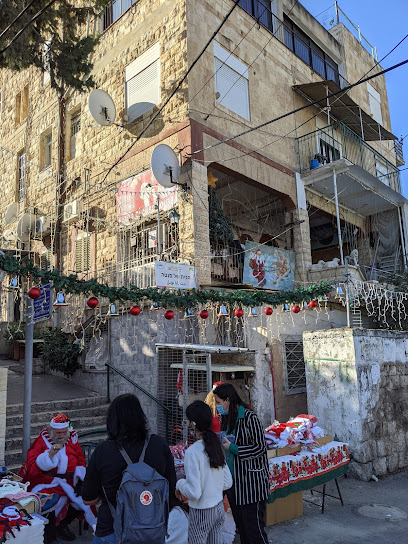
Haifa's High View
Experience breathtaking views and serene nature at Haifa's High View, the perfect park for relaxation and stunning photography.
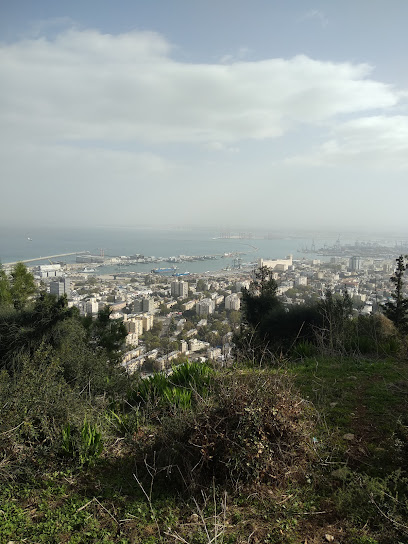
Essential places to dine
Fattoush
Experience the flavors of Lebanon at Fattoush in Haifa—a unique blend of restaurant, coffee shop, and book store awaits you.
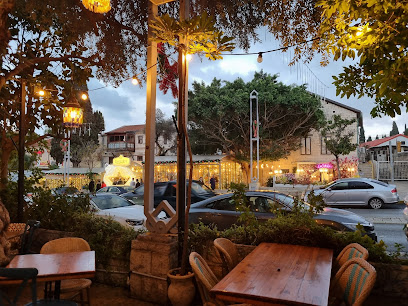
Shtroudl
Discover authentic Mediterranean flavors at Shtroudl in Haifa, where every dish is crafted with passion and tradition.
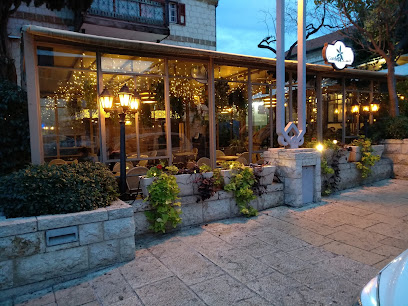
Garden Restaurant
Experience exquisite Italian and Middle Eastern cuisine at Haifa's charming Garden Restaurant, where culinary delights meet beautiful surroundings.
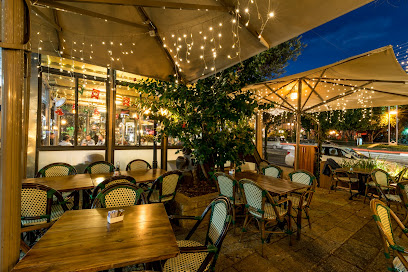
Douzan
Discover Douzan in Haifa: A delightful restaurant serving authentic Israeli cuisine with fresh ingredients and warm hospitality.
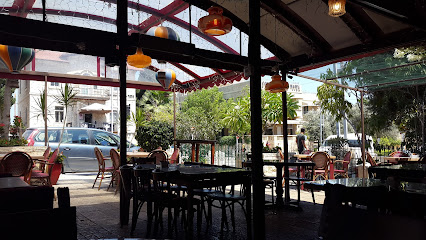
דרים נמו
Discover the flavors of the sea at Dream Nemo in Haifa – where fresh seafood meets exceptional dining experiences.
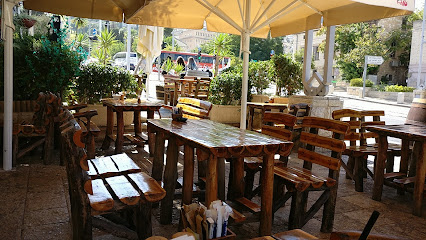
Ein ElWadi Restaurant
Experience the rich flavors of Haifa at Ein ElWadi Restaurant, where exceptional cuisine meets warm hospitality in a cozy atmosphere.
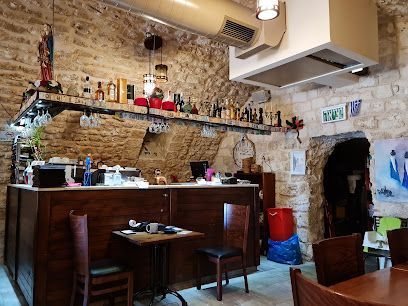
Kingdom Restaurant & Bar
Experience the vibrant flavors of Haifa at Kingdom Restaurant & Bar—your go-to spot for grilled meats and fresh seafood in a lively setting.
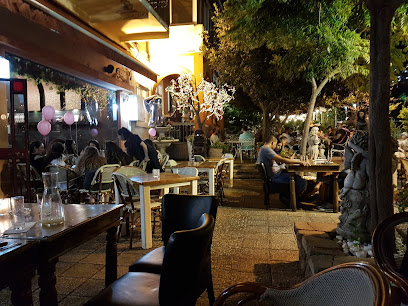
Villarrica
Experience authentic culinary delights at Villarrica in Haifa – where every dish tells a story.
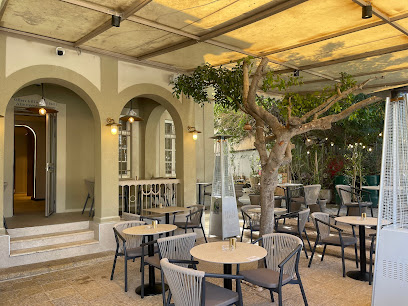
Tarbush Cafe & Restaurant
Discover authentic Middle Eastern cuisine at Tarbush Cafe & Restaurant in Haifa – where taste meets tradition in a warm atmosphere.
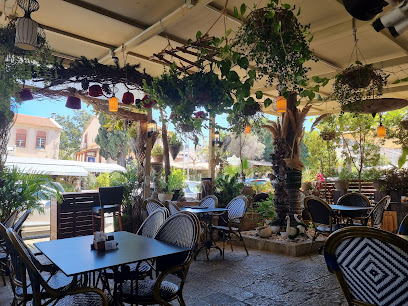
Gaudi Chef Restaurant
Experience the vibrant flavors of Spain at Gaudi Chef Restaurant in Haifa – a must-visit tapas destination for every foodie.
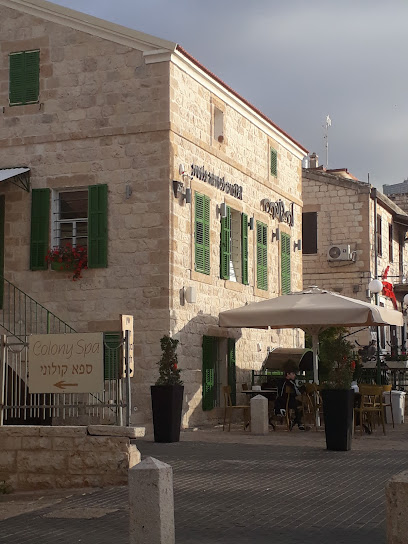
Markets, malls and hidden boutiques
City Center - Outlet
Discover unbeatable deals and a vibrant shopping atmosphere at City Center - Outlet, Haifa's top destination for fashion and lifestyle.
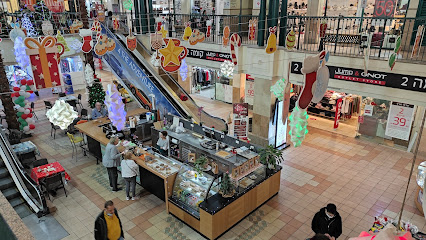
Bible Society in Israel | החברה לכתבי הקודש בישראל
Explore the Bible Society in Israel for a remarkable selection of religious texts, children's books, and unique cultural souvenirs in Haifa.
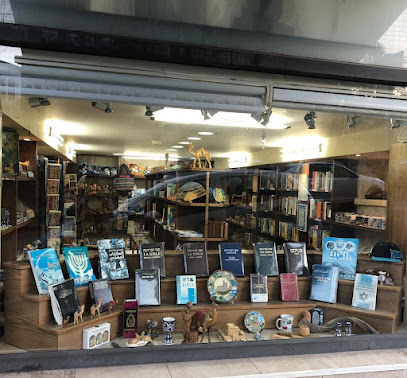
Ballan Gifts - בלאן מתנות
Explore a delightful gift shop in Haifa, offering handcrafted souvenirs and unique treasures that reflect local culture and creativity.
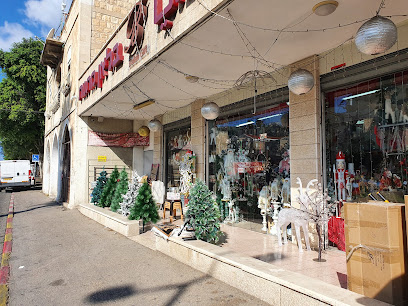
Darnah - دارنـــا
Explore Darnah Gift Shop in Haifa for unique handcrafted gifts and authentic souvenirs that embody the local culture and artistry.
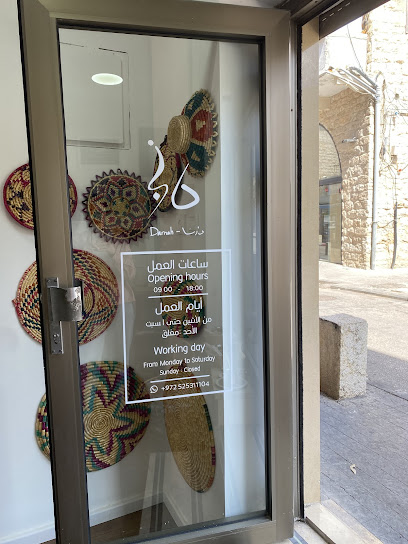
Armant - Baha’i Faith Gifts and Souvenirs
Explore unique Baha’i Faith gifts and souvenirs in Haifa, where spirituality meets artistry in a charming shopping experience.
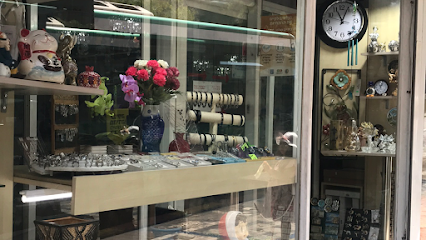
Kattouf
Discover unique fashion accessories at Kattouf in Haifa, where Israeli design meets exquisite craftsmanship in every piece.
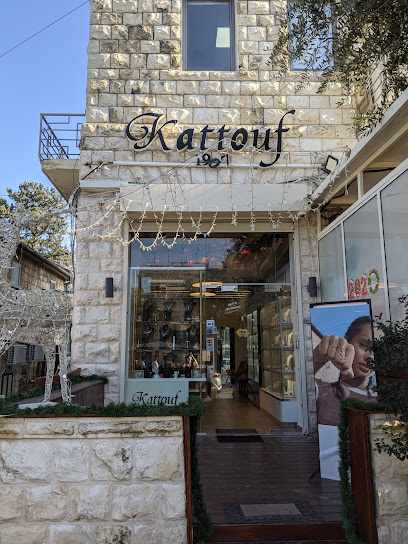
Delta Outlet חיפה
Explore Delta Outlet in Haifa for a diverse selection of trendy clothing and accessories, perfect for every fashion lover visiting Israel.
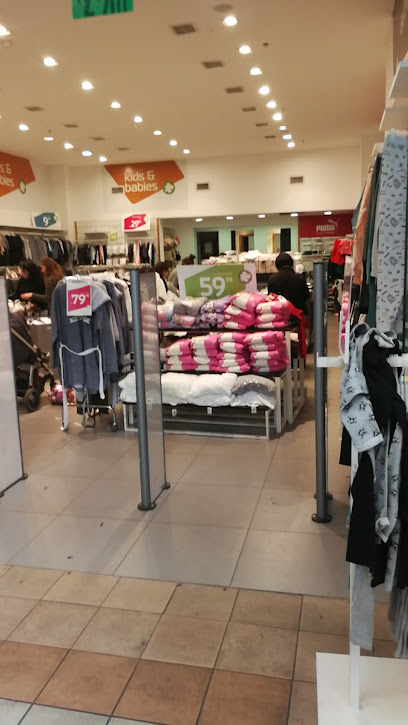
Mila boutique
Discover Mila Boutique in Haifa for stylish dresses that blend modern trends with Israeli culture, perfect for every occasion.
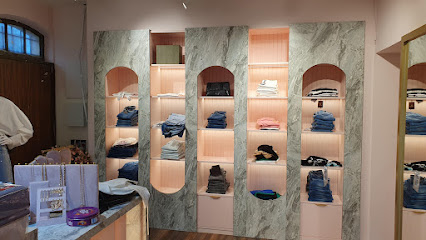
Ahimsa Boutique
Discover unique fashion accessories at Ahimsa Boutique in Haifa, where local creativity meets contemporary style.
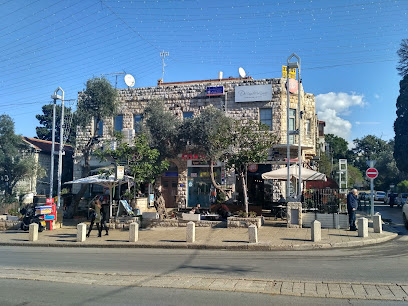
Shalah gifts
Discover a whimsical gift shop in Haifa, offering a delightful range of toys and balloons perfect for every occasion.
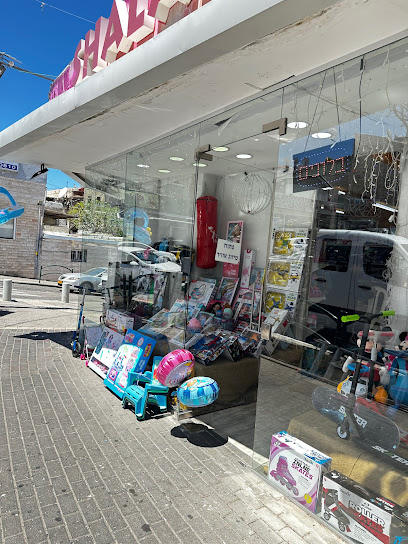
Essential bars & hidden hideouts
Eli's Pub-אליס פאב
Discover the vibrant atmosphere of Eli's Pub in Haifa, where live music, delicious burgers, and expertly crafted cocktails await you.
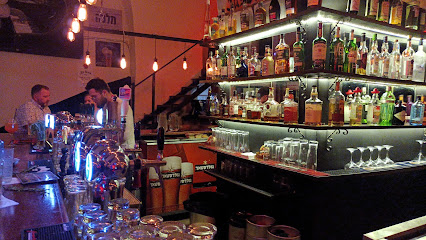
Urban Street Bar
Discover Urban Street Bar in Haifa for an unforgettable nightlife experience filled with vibrant drinks, local culture, and friendly faces.
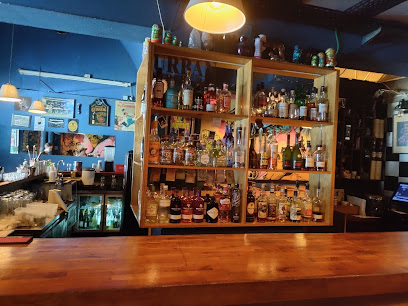
Frankie
Experience the vibrant nightlife at Frankie Pub in Haifa, where great drinks and a welcoming atmosphere await every visitor.
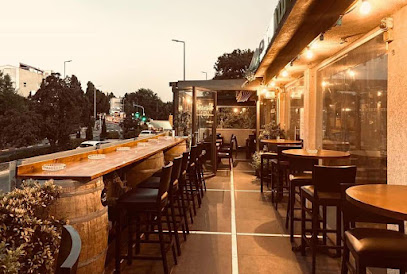
Feiwel Bar
Discover the lively atmosphere and creative cocktails at Feiwel Bar, Haifa's premier nightlife destination for tourists and locals alike.
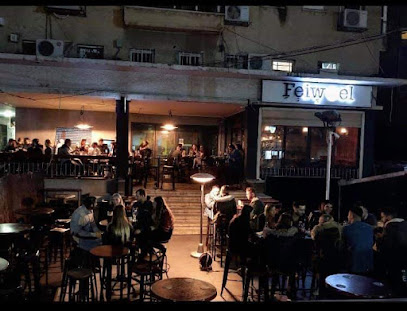
Sababa Bar
Experience the vibrant nightlife of Haifa at Sababa Bar, where great drinks and an inviting atmosphere await.
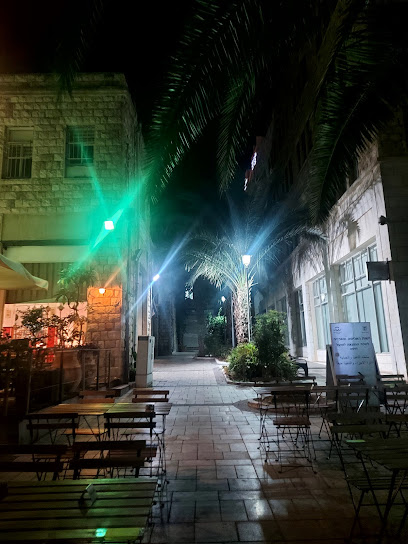
ESCOBAR
Discover the vibrant nightlife at ESCOBAR, a lively pub in Haifa offering local flavors and unforgettable experiences.
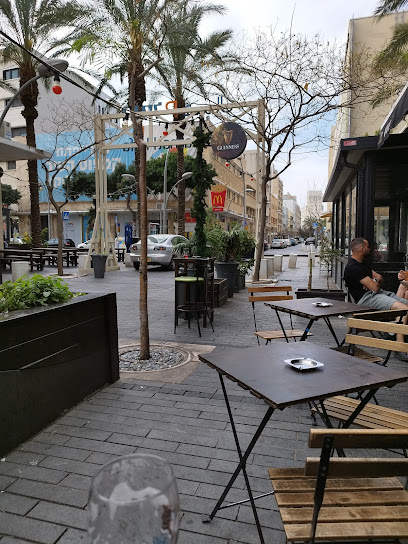
The Wild Haifa
Discover the vibrant nightlife of Haifa at The Wild Haifa, where exceptional music and a lively atmosphere await you.
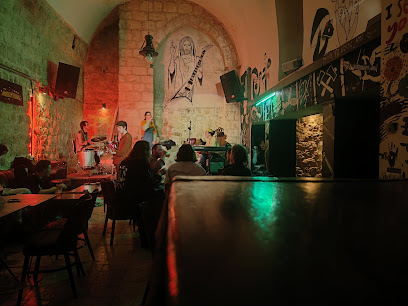
Brooklyn - Bar & Kitchen
Experience the vibrant culinary scene at Brooklyn - Bar & Kitchen in Haifa, where exceptional food meets lively atmosphere.
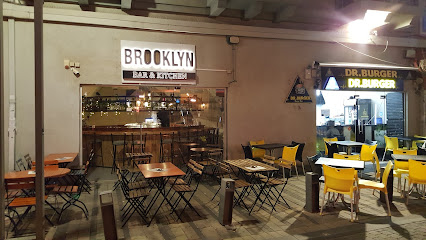
El profesor
Discover the vibrant nightlife at El Profesor, a bar and restaurant in Haifa, where delicious food meets a lively atmosphere.
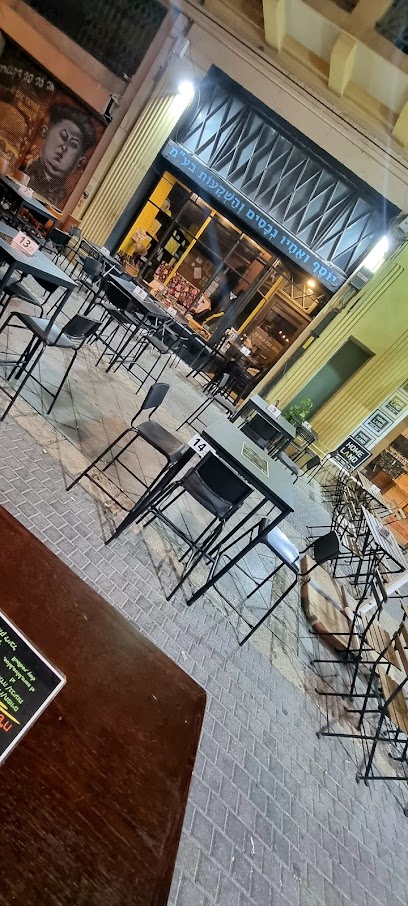
Бар
Discover the vibrant bar scene in Haifa, offering a perfect blend of local culture, delicious drinks, and an inviting atmosphere for unforgettable nights out.
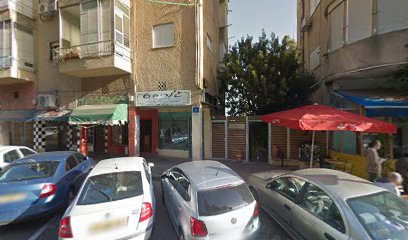
Local Phrases
-
- Helloשָׁלוֹם
[Shalom] - Goodbyeלְהֵיפָּךְ
[Lehitra'ot] - Yesכֵּן
[Ken] - Noלֹא
[Lo] - Please/You're welcomeבבקשה
[Bevakasha] - Thank youתודה
[Toda] - Excuse me/Sorryסְלִיחָה
[Slicha] - How are you?איך אתה?
[Eich Ata?] - Fine. And you?טוב. ואתה?
[Tov. Ve'ata?] - Do you speak English?אתה מדבר אנגלית?
[Ata Medaber Anglit?] - I don't understandאני לא מבין
[Ani Lo Mevin]
- Helloשָׁלוֹם
-
- I'd like to see the menu, pleaseאני רוצה לראות את התפריט, בבקשה
[Ani Rotze La'rot et Ha'ta'amit, Bevakasha] - I don't eat meatאני לא אוכל בשר
[Ani Lo Ochel Basar] - Cheers!לחיים!
[Lechayim!] - I would like to pay, pleaseאני רוצה לשלם, בבקשה
[Ani Rotze Leshalem, Bevakasha]
- I'd like to see the menu, pleaseאני רוצה לראות את התפריט, בבקשה
-
- Help!עזרה!
[Ezra!] - Go away!לך לך!
[Lech Lech!] - Call the Police!תקרא למשטרה!
[Tikra La'mishtara!] - Call a doctor!תתקשר לרופא!
[Titkasher La'rofe!] - I'm lostאני אבוד
[Ani Avud] - I'm illאני חולה
[Ani Choleh]
- Help!עזרה!
-
- I'd like to buy...אני רוצה לקנות...
[Ani Rotze Leknot...] - I'm just lookingאני רק מסתכל
[Ani Rak Mistakel] - How much is it?כמה עולה זה?
[Kama Oleh Ze?] - That's too expensiveזה יקר מדי
[Ze Yikar M'od] - Can you lower the price?אתה יכול להוריד את המחיר?
[Ata Yachol Lehored Et Ha'machir?]
- I'd like to buy...אני רוצה לקנות...
-
- What time is it?מה השעה?
[Ma Ha'sha'a?] - It's one o'clockזה חדש האחת
[Ze Chadash Ha'achat] - Half past (10)חצי (עשר)
[Chatzi (Esreh)] - Morningבוקר
[Boker] - Afternoonאחר הצהריים
[Achar Ha'tzohorayim] - Eveningערב
[Erev] - Yesterdayאתמול
[Etmol] - Todayהיום
[Hayom] - Tomorrowמחר
[Mahar] - 1אחד
[Echad] - 2שניים
[Shnayim] - 3שלושה
[Shlosha] - 4ארבעה
[Arba'a] - 5חמישה
[Chamisha] - 6שישה
[Shisha] - 7שבעה
[Shiv'a] - 8שמונה
[Shmona] - 9תשעה
[Tish'a] - 10עשרה
[Eser]
- What time is it?מה השעה?
-
- Where's a/the...?איפה נמצא/ת...
[Eifo Nmatsa/Ta...] - What's the address?מה הכתובת?
[Ma Ha'ktoovet?] - Can you show me (on the map)?אתה יכול להראות לי (על המפה)?
[Ata Yachol Leharaot Li (Al Ha'mapa)?] - When's the next (bus)?מתי האוטובוס הבא?
[Matai Ha'otobus Ha'ba?] - A ticket (to ....)כרטיס (ל....)
[Kartis (Le....)]
- Where's a/the...?איפה נמצא/ת...
History of German Colony
-
The German Colony in Haifa was founded in the mid-19th century, primarily by members of the Templer movement from Germany. Seeking to establish a utopian society based on their Protestant beliefs, they settled in the area around 1868. The Templers were attracted to the region due to its biblical significance and the opportunity to cultivate the land.
-
The Templers brought with them a unique architectural style that is still evident today in the German Colony. Their influence can be seen in the distinctive stone houses, which often feature lush gardens and intricate woodwork. The Colony became a cultural hub, blending German traditions with local customs, and established schools, churches, and community centers that served the growing population.
-
During the late 19th and early 20th centuries, the German Colony thrived economically, primarily through agriculture. The Templers introduced advanced farming techniques and cultivated various crops, including citrus fruits, which contributed to Haifa's agricultural output. Their agricultural success laid the foundation for Haifa's development as an important port city.
-
With the outbreak of World War I, the Templers, who were German nationals, faced significant challenges. Many were interned, and their properties were confiscated by the British authorities. After the war, the community’s influence diminished, and they gradually left the area, leading to a shift in the neighborhood's demographics.
-
In recent years, the German Colony has undergone a revival, with efforts to preserve its historical significance. The area has become a vibrant cultural and commercial hub, attracting tourists and locals alike. The restoration of historical buildings and the establishment of cafes, restaurants, and galleries have revitalized the neighborhood, blending its rich history with contemporary life in Haifa.
German Colony Essentials
-
The German Colony is situated in the heart of Haifa and is easily accessible from other neighborhoods. You can take the Carmelit, Haifa's underground funicular, which will take you close to the Colony from the central bus station. Alternatively, local buses run frequently from various parts of Haifa to the German Colony. Taxis and rideshare services like Gett are also widely available.
-
The German Colony is pedestrian-friendly, making it easy to explore on foot. Public buses operate throughout the area, connecting you to other parts of Haifa. Bicycles can be rented from local shops, and there are bike lanes available. However, be cautious as the terrain can be hilly in some areas.
-
The German Colony is generally a safe neighborhood for tourists. However, as in any urban area, it is advisable to avoid poorly lit streets at night and remain aware of your surroundings. Areas near the Haifa port and some parts of the downtown are known for occasional petty crimes, so it’s best to exercise caution in those locations.
-
In case of emergency, dial 100 for police, 101 for ambulance, and 102 for fire services. There are hospitals and clinics in Haifa, including Bnai Zion Medical Center. It's advisable to carry travel insurance that covers medical emergencies. Pharmacies are available in the German Colony for minor health issues.
-
Fashion: Do dress modestly, particularly when visiting religious sites. Avoid overly revealing outfits. Religion: Do respect local customs, especially in the presence of religious sites. Public Transport: Do offer your seat to elderly passengers. Don't eat or drink on public transport. Greetings: Do greet with a handshake and a smile. Don't be overly familiar with personal space. Eating & Drinking: Do try local cuisine and enjoy meals at local eateries. Don't waste food or leave large portions uneaten, as it can be seen as disrespectful.
-
To experience the German Colony like a local, visit the local cafes and bakeries, especially for traditional pastries. Engage with shop owners; they are often eager to share the history of the area. Explore the picturesque streets and take time to enjoy the architecture, such as the historic Templer houses. Don’t miss the local events, such as farmers' markets on weekends, where you can mingle with residents and sample fresh produce.
Trending Landmarks in German Colony
Nearby Cities to German Colony
-
Things To Do in Akko
-
Things To Do in Acre
-
Things To Do in Nahariya
-
Things To Do in Zikhron Ya'akov
-
Things To Do in Rosh HaNikra
-
Things To Do in Nazareth
-
Things To Do in Caesarea
-
Things To Do in Hadera
-
Things To Do in Safed
-
Things To Do in Tiberias
-
Things To Do in Tyre
-
Things To Do in Netanya
-
Things To Do in Beit She'an
-
Things To Do in Umm Qais
-
Things To Do in Ra'anana










